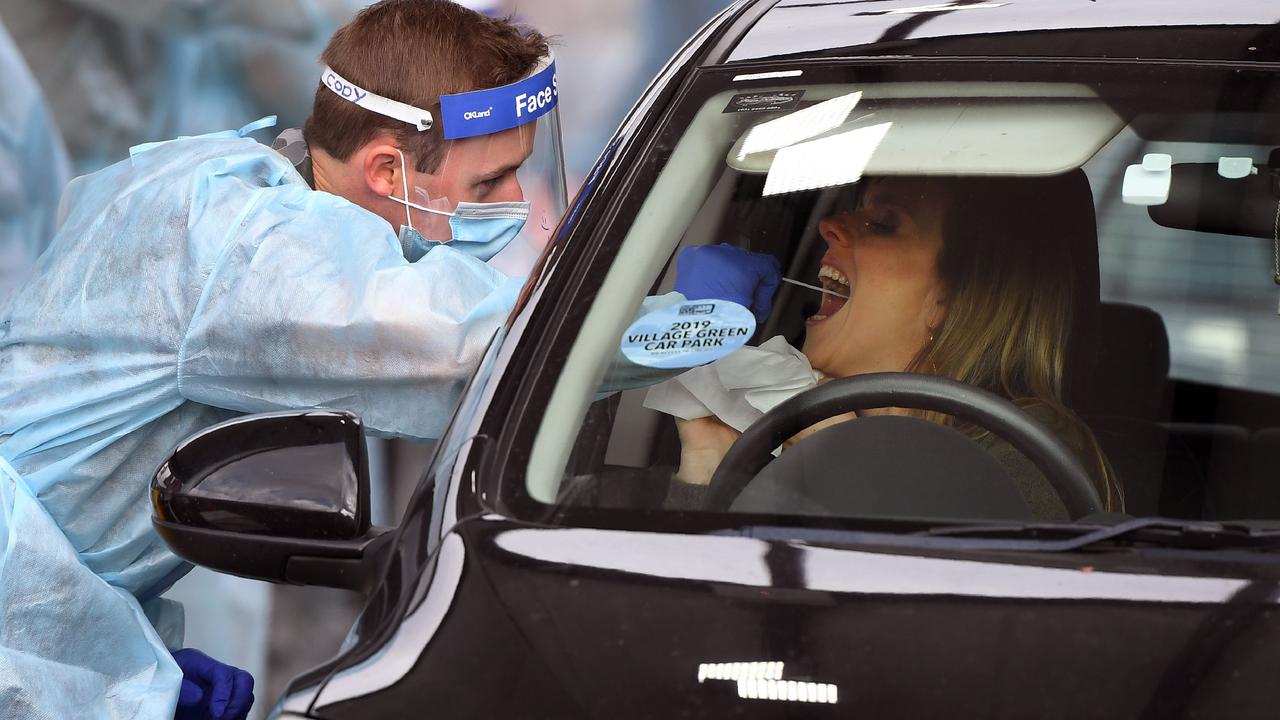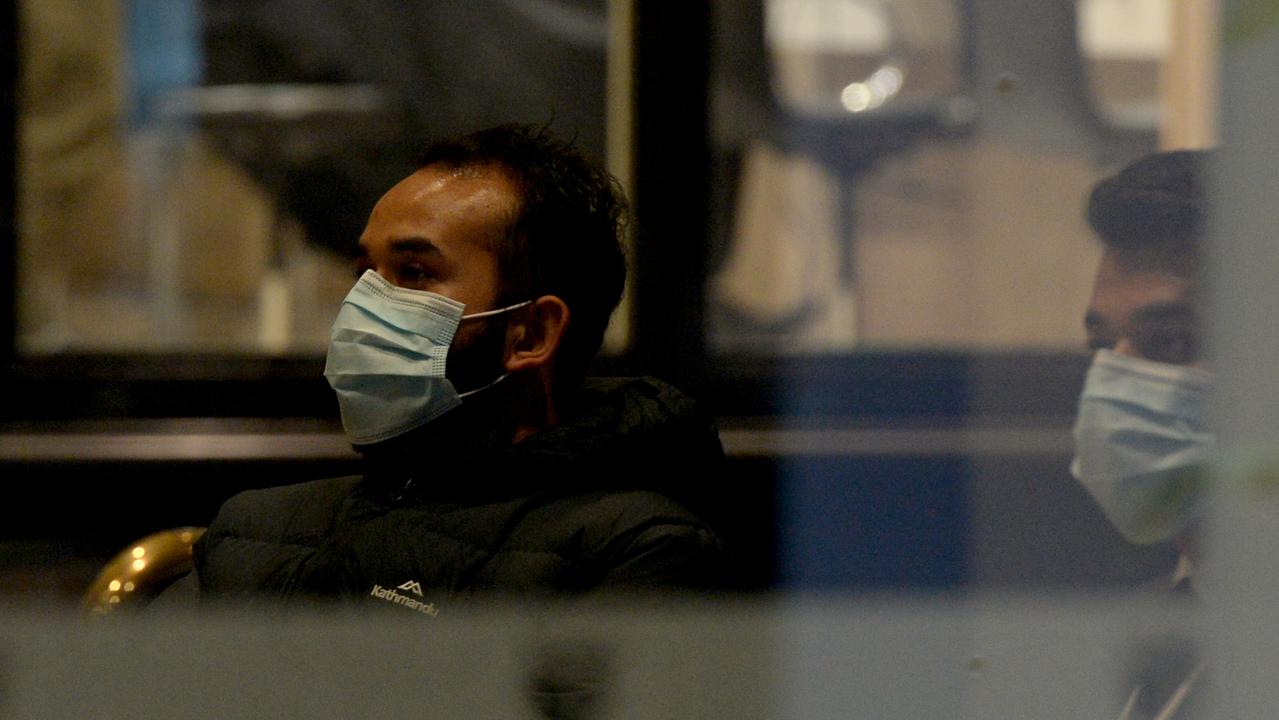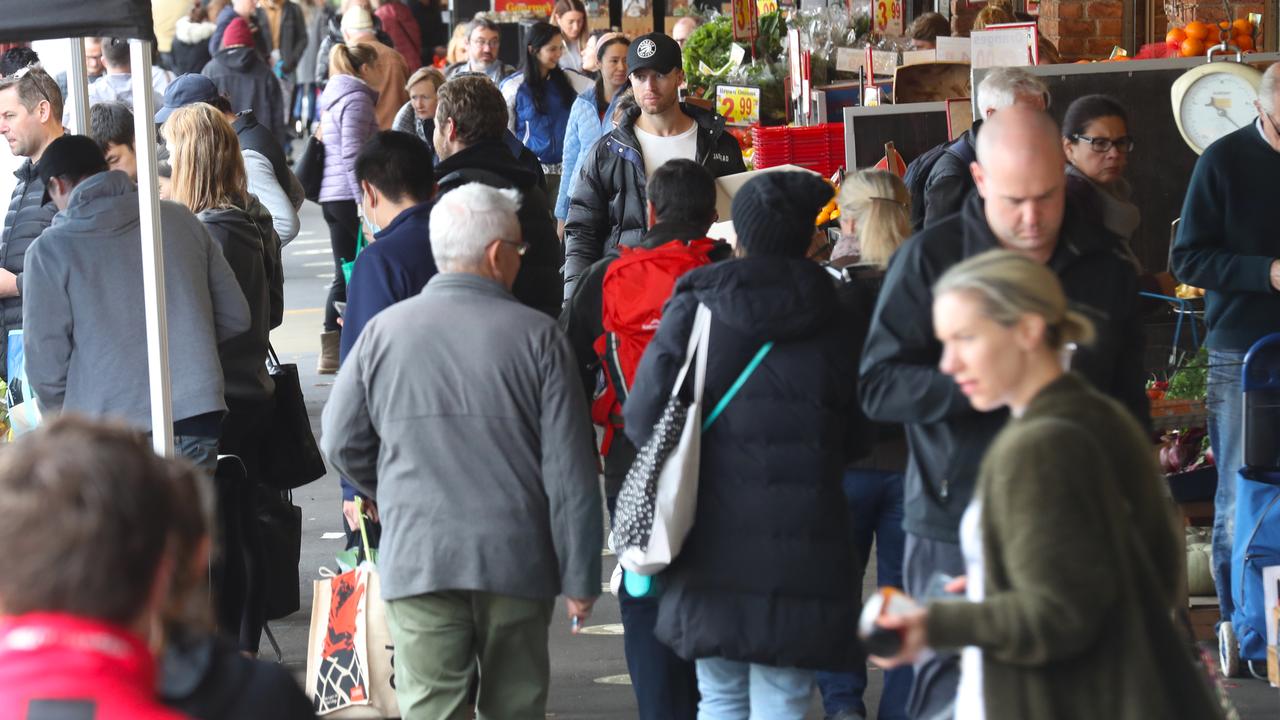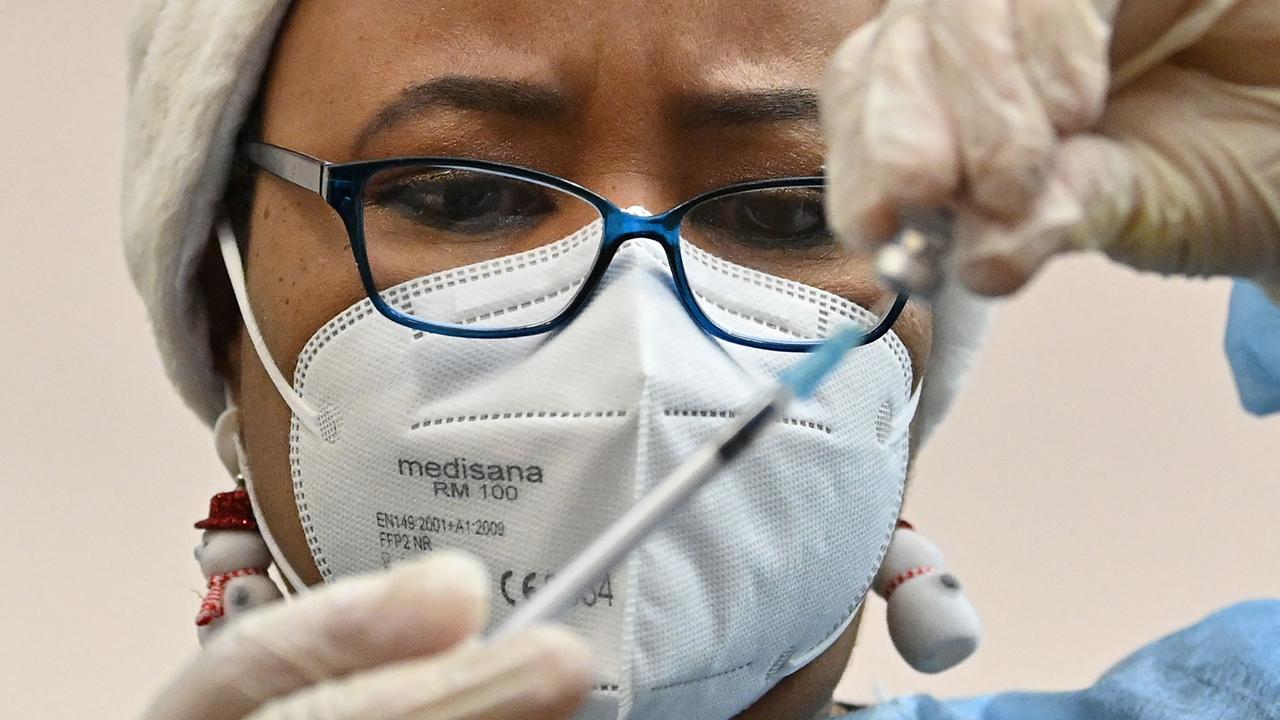Coronavirus Melbourne: Why Victoria is getting clusters of outbreaks
Melbourne’s brutal virus spike has been driven by several clusters of infection - and there’s one reason why more flare-ups are “inevitable”.

People are the greatest antidote to the COVID-19 pandemic. But they’re also its greatest threat. Which is why Australia’s economic and physical health is in your hands.
It’s a matter of choice. Of knowledge. Of responsibility.
The Victorian outbreak has been attributed to private security guards breaching hotel quarantine measures. It’s been blamed on large family gatherings. It’s been traced to failures to self-quarantine.
“The need for continued vigilance is clear,” a Griffith University report reads. “But, this time round, there are confounding factors.”
Prime Minister Scott Morrison doesn’t want widespread lockdowns. He wants state borders reopened. He wants rolling containment measures to be the “new normal” until the threat of COVID-19 is gone.
RELATED: Follow our live coronavirus coverage
RELATED: Where Victoria’s new virus cases come from

It’s all part of the containment strategy adopted by national cabinet. Unlike New Zealand, which has successfully pursued a harsh lockdown strategy to eliminate the virus, Australia has chosen to rely on testing and contact tracing to suppress flare-ups and clusters.
That means new outbreaks such as that in Victoria are virtually inevitable. So learning from each event is vital to reduce the impact of the next. But, according to a variety of Australian health academics, one common factor is at play: The fallibility of human nature.
The upshot? A significantly reduced capacity to face a second wave of the pandemic.
“To what extent can we now ‘trust’ Australians to comply with the latest advice from health authorities? Will complacency creep in? Early evidence in Victoria suggests this is a fragile situation,” the group of four Griffith academics warn.
EXTRAORDINARY STEPS
Like every state, Victoria’s chief health officer has emergency powers to combat the pandemic’s spread. This includes the ability to detain people, or restrict the movement of people, to eliminate a health risk. This applies to returning travellers in the form of a 14-day hotel quarantine. It also applies to restricting movement in and out of suburban hot spots.
Now public pressure is mounting to enforce punitive new measures to compel compliance with these measures. But experts question the effectiveness of such highly-visibility moves
“The quarantine program in Victoria has been a clear failure, due to the alleged breaches of public health protocols,” writes RMIT University legal expert Stan Winford. But identifying the root cause of the problem is more important than high-visibility acts, he says.
RELATED: ‘Fatal blunder’: Where we went wrong

Exactly how protocols surrounding quarantine hotels were violated is the subject of an independent inquiry. The private security contractors tasked with enforcing the quarantine restrictions have been set aside, with officers from Corrections Victoria taking their place. Questions have also been asked about the efficiency of attempts to communicate the pandemic’s severity across all language groups.
Now, with new cases emerging at an alarming rate, Victoria – and Australia – is grappling with how to respond.
“During times of emergency, it is critical powers with the potential to limit human rights and deprive people of liberty are properly communicated to the community and used with restraint,” says Winford. “This is not only important for the protection of individual rights, but also to prevent lasting damage to the rule of law.”
COMPLACENCY CONTAGION
“You could be forgiven for feeling like the messaging around coronavirus restrictions has been mixed,” the Griffiths researchers write. “Ensuring continued compliance with measures that limit personal liberties is a tenuous game.”
The university conducted a nationwide survey in April, five-weeks after mandatory isolation measures were imposed. It exposed a disturbing undercurrent of entitlement:
– About 57 per cent admitted to going shopping for non-essential items.
– More than 50 per cent admitted to socialising outside their household.
– Some 45 per cent admitted to leaving the house ‘without a really good reason’.
– Another 40 per cent said they travelled simply for the sake of leisure.
– Disturbingly, 6 per cent said they left their home with potential COVID-19 symptoms.
Any reimposition of strict social distancing measures is likely to be met with even worse compliance, they warn.
RELATED: Why US is facing 100,000 cases a day

But complacency isn’t the only factor at play. There’s the threat posed by those with a heightened sense of privilege. Then there’s the threat of those struggling to make ends meet.
According to two University of Melbourne epidemiology researchers, many of the new COVID-19 hot spots could have been anticipated.
“While chance and circumstances converge to create outbreaks there are also some obvious factors related to where and how people live that impact their capacity to isolate,” they write. “We need to acknowledge the spatial concentration of these sites of vulnerability is not random.”
The COVID-19 clusters, they say, are in areas of high housing affordability stress and low incomes. That results in overcrowding and poor living conditions preventing effective social distancing and hygiene.
“Second, people without savings may be compelled to go to work despite feeling unwell,” the University of Melbourne researchers write. “They need to meet their weekly housing costs and don’t have savings enough to go two weeks (or longer) without income.”
BY ORDER OF THE STATE
Victoria’s Health Minister Jenny Mikakos said during the week more than 10,000 Victorians have rejected approaches to be tested for the virus.
The reported reasons vary:
– Some say they cannot afford to self-isolate.
– Some don’t accept the virus threat is real.
– Some are suspicious of authorities, or simply don’t understand the request.
Under Victorian law, the declaration of a biosecurity emergency in March gives the health minister powers to combat the pandemic. This includes the ability to compel testing. So far, it’s not been enacted.
“Unlike the Commonwealth Biosecurity Act, this power seems constrained to being used as a measure of last resort,” Winford says. “The Victorian act refers to the consideration of alternatives and a preference for the ‘measure which is the least restrictive of the rights of the person’.”

It’s a delicate balance. Compulsion may force compliance. But it could also foment rebellion.
“People obey laws and comply with rules when they see them as legitimate, not because they fear punishment,” says Winford. “If the rules are unclear, or the process of developing them poorly explained, they may feel like postcode lottery to residents.”
BALANCING ACT
It is impossible to force compliance with measures such as masks and hand washing, the Griffith researchers argue. It’s also difficult to force people to stay in their homes – even when unwell. But something needs to be done.
“Given the highly infectious nature of the virus, even minor transgressions could have disastrous consequences. It’s too soon to relax.”
Draconian measures, they write, are unlikely to be the answer.
“Our survey indicated fear of punishment played little role in motivating Australians to observe social distancing rules during lockdown. Personal morality and feeling obligated to abide by recommendations were more important deciders.”
It’s more effective, they argue, to convince citizens of the need to follow the rules.
“Importantly, the best strategy would be to persuade citizens it’s their moral responsibility to follow the rules, as this will help protect the most vulnerable among us.”
That can be done through detailing, explaining and providing examples of COVID-19’s dangers.
Winford also warns against unnecessarily authoritarian acts.
“In a civil society, fundamental freedoms and individual liberties are highly valued, and intrusive powers should be used only where necessary,” he says. “In a state of emergency, some limitations of rights may be necessary, but any such limitation must be necessary, justifiable, proportionate and time-bound.”
Jamie Seidel is a freelance writer | @JamieSeidel




